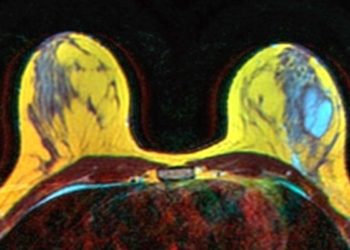Novel endovascular devices for clot retrieval in acute ischemic stroke: The TREVO2 and SWIFT trials
Image: CC/KOwl
Key findings:
- In the setting of large vessel acute ischemic stroke, both the Trevo Retriever and the Solitaire Flow Restoration device demonstrated improved outcome in terms of thrombolysis and long-term functional outcome compared to the industry standard Merci Retriever without an increase in adverse events.
Primer: Mechanical clot retrieval devices have been employed in acute ischemic stroke to achieve increased reperfusion compared to intravenous/intra-arterial thrombolysis or in cases where recombinant tissue plasminogen activator (rt-Pa) is contraindicated, or outside of its narrow therapeutic window. However, mechanical devices fail to recanalize anywhere from 20-40% of large vessel occlusive strokes. Previous attempts to study the efficacy of endovascular device mediated treatment versus rt-Pa have been inconclusive, and mechanical thrombectomy is current utilized as an adjunct to failed medical thrombolysis. This week, the results two randomized controlled multicenter trials of novel endovascular clot retrieval devices for acute ischemic stroke were reported against the industry standard corkscrew retriever, the Merci Retreiver (Stryker Neurovascular). The Trevo Retriever is a stent-like device that expands to apply radial retrieval force against the thrombus into the vessel wall to incorporate the clot material into its struts. The Solitaire Flow Restoration Device (Covidien/ev3) is also self-expanding stent with a strut that is designed to envelope the thrombus and withdraw it in its unfolded state.
Background reading:
- RG Nogueira, AJ Yoo, FS Buonanno, JA Hirsch. Endovascular approaches to acute stroke, part 2: a comprehensive review of studies and trials. AJNR Am J Neuroradiol, 30 (2009), pp. 859–875.
- A Furlan, R Higashida, L Wechsler et al. Intra-arterial prourokinase for acute ischemic stroke. The PROACT II study: a randomized controlled trial. Prolyse in Acute Cerebral Thromboembolism. JAMA, 282 (1999), pp. 2003–2011.
These [multi-center, randomized, controlled] studies: The Trevo trial recruited individuals from 26 sites in the US and one in Spain with large vessel occlusive strokes confirmed by angiography within 8 hours of onset. Patients were randomly assigned to either devices with a primary endpoint of thrombolysis in cerebral infarction (TICI) score of 2 or greater or greater perfusion with the device alone. Patients in the Solitaire trial were recruited from 17 sites in the US and one in France with acute ischemic strokes with moderate to severe neurological deficits treatable by thrombectomy within 8 hours of onset. Patients were randomly assigned to either device with a primary endpoint of thrombolysis in myocardial ischemia (TIMI) scale of 2-3 after up to three passages with device. The Solitaire trial was halted early by a pre-specified efficacy cutoff rule.
The Trevo trial randomly assigned 88 patients the Trevo group and 90 patients to the control Merci group. The primary outcome was achieved in a greater percentage (86% vs 60% p<.0001) in the Trevo device group. While there was no difference in 90 day mortality, functional outcomes were improved in the Trevo group (p=.013). The Solitaire trial randomly assigned 58 patients to the Solitaire group and 55 patients to the control Merci group. The primary outcome was achieved in a greater percentage (61% vs 25%; p<.0001) within the Solitaire device group. Additionally, good 3-month neurological outcome (58% vs 33%, psuperiority=.02) and 90 day mortality (17% vs 38%, psuperiority=.02) were both improved within the Solitaire device group.
Patients in both studies did not respond initially to treatment with rt-Pa. Device or procedure-related adverse events did not differ between treatment and control groups in either study.
In sum: These two trials examined the efficacy of two new novel endovascular thrombus retrieval devices against the industry standard Merci thrombectomy device. Both studies were conducted in a rigorous, multi-center randomized, controlled fashion and had results that demonstrate clear superiority of both devices over the current Merci Retrieval device in achieving thrombolysis and recanalization in the setting of large vessel acute ischemic stroke without any significant increase in device or procedure-related adverse events. Critically, both studies also demonstrated improvements in long-term functional and/or neurological outcomes. Though the sample sizes were small because the trials were powered as non-inferiority trials, these studies against the industry standard for thrombectomy justify the need for a prospective randomized trial of endovascular therapy with both devices in complement to and against medical therapy alone, including newer generation thrombolytics.
Written by [AH] and [MM]
Click here to read the TREVO2 study in Lancet
Click here to read the SWIFT study in Lancet
© 2012 2minutemedicine.com. All rights reserved. No works may be reproduced without written consent from 2minutemedicine.com. DISCLAIMER: Posts are not medical advice and are not intended as such. Please see a healthcare professional if you seek medical advice.






